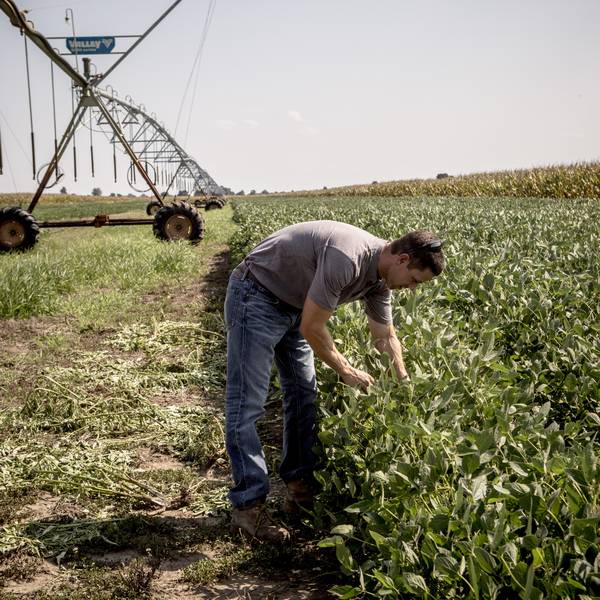Despite India's law barring genetically modified (GM) foods from being produced or sold in the country without government approval, a study by the New Delhi-based Centre for Science and Environment (CSE) found that thanks to lax enforcement, a deeply flawed labeling system, and corporate deception, Indian supermarkets are inundated with GM foods.
"Most GM foods in the study did not disclose GM on their labels and 15 percent made false claims saying they were GM-free."
-- Sunita Narain, Centre for Science and Environment
After conducting tests on "domestically produced and imported edible oils, processed and packaged foods, and infant foods," CSE researchers found that 32 percent of the samples tested contained genetically modified organisms (GMOs), and 80 percent of the GMO-positive foods were imported from the United States, Canada, the Netherlands, Thailand, and the United Arab Emirates.
"Most GM foods in the study did not disclose GM on their labels and 15 percent made false claims saying they were GM-free," Sunita Narain, CSE's director general, said in a statement.
CSE's results expose "large-scale illegal presence and sale of genetically modified (GM) processed foods in the country," researchers wrote in a summary of their findings. "GM contamination was found in infant food, sold for children with medical ailments, including allergies. Two products by Abbott Laboratories, the American healthcare company, were found to be GM-positive--one was for lactose-intolerant infants and the other was a hypoallergenic (for minimizing the possibility of an allergic reaction). Neither product has any label warning parents that this food has GM ingredients."
"We had been hearing about the presence of illegal GM food in India, and decided to do a reality check by testing processed foods," CSE deputy director general Chandra Bhushan said. "We were shocked to know the scale in which GM foods have penetrated the Indian market. The regulatory authorities are to blame here."
"Indians deserve to grow, produce, distribute good food for all, instead of bad food and fake food imposed by the unscientific, undemocratic, anti-national labelling rules for the profits of the GMO and junk food industry at the cost of people's health."
--Vandana Shiva
As noted author and food sovereignty activist Vandana Shiva observed in a recent column, the labeling system established by the Food Safety and Standards Authority's (FSSAI)--the body responsible for food regulation and safety in India--was flawed from the start.
"The FSSAI rules are undemocratic because the FSSAI is advised by the same corporations that have spread unhealthy food across the industrial world, and now want to impose it on India--Coke, Pepsi and Nestle," Shiva wrote. "This translates into corporate food fascism."
She added, "Indians deserve to grow, produce, distribute good food for all, instead of bad food and fake food imposed by the unscientific, undemocratic, anti-national labeling rules for the profits of the GMO and junk food industry at the cost of people's health and our national food and health sovereignty."




